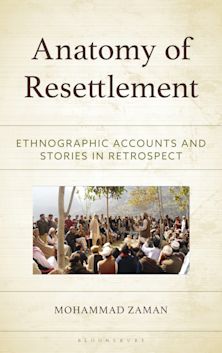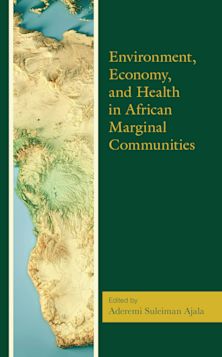- Home
- ACADEMIC
- Anthropology
- Anthropology - Other
- Applying Anthropology to Gender-Based Violence
Applying Anthropology to Gender-Based Violence
Global Responses, Local Practices
Jennifer R. Wies (Anthology Editor) , Hillary J. Haldane (Anthology Editor) , Kimberly Ashburn (Contributor) , Melissa Beske (Contributor) , Karin Friederic (Contributor) , Hillary J. Haldane (Contributor) , Yasmina Katsulis (Contributor) , Lynn Kwiatkowski (Contributor) , Rebecka Lundgren (Contributor) , April DJ Petillo (Contributor) , Mark Schuller (Contributor) , M. Gabriela Torres (Contributor) , Jennifer R. Wies (Contributor) , Elizabeth Wirtz (Contributor)
Applying Anthropology to Gender-Based Violence
Global Responses, Local Practices
Jennifer R. Wies (Anthology Editor) , Hillary J. Haldane (Anthology Editor) , Kimberly Ashburn (Contributor) , Melissa Beske (Contributor) , Karin Friederic (Contributor) , Hillary J. Haldane (Contributor) , Yasmina Katsulis (Contributor) , Lynn Kwiatkowski (Contributor) , Rebecka Lundgren (Contributor) , April DJ Petillo (Contributor) , Mark Schuller (Contributor) , M. Gabriela Torres (Contributor) , Jennifer R. Wies (Contributor) , Elizabeth Wirtz (Contributor)
For information on how we process your data, read our Privacy Policy
Thank you. We will email you when this book is available to order
You must sign in to add this item to your wishlist. Please sign in or create an account
Description
Applying Anthropology to Gender-Based Violence: Global Responses, Local Practices addresses the gaps in theory, methods, and practices that are currently used to engage the problem of gender-based violence. This book complements the work carried out in the legal, human services, and health fields by demonstrating how a focus on local issues and responses can better inform a collaborative global response to the problem of gender-based violence. With chapters covering Africa, Asia, Latin and North America, and Oceania, the volume illustrates the various ways scholars, practitioners, frontline workers, and policy makers can work together to end violence in their local communities. The chapters in this volume provide ample evidence that top-down responses to violence have been inadequate, and that solutions are available when the local historical, political, and social context is taken into consideration. Applying Anthropology to Gender-Based Violence contains useful insights that, when combined with the efforts of other disciplines, offer solutions to the problem of gender-based violence.
Table of Contents
Acknowledgments
IntroductionReturn to the Local: Lessons for Global Change
Jennifer R. Wies and Hillary J. Haldane
Part I Ethnographic Intimacies
Chapter 1Domestic Violence, Embodiment, and Women's Lives in Northern Vietnam
Lynn Kwiatkowski
Chapter 2 Bureaucratic Bindings: Refugee Resettlement and Intimate Partner Abuse
Elizabeth Wirtz
Part II Multi-Scalar Responses to Gender-Based Violence
Chapter 3 Munted: Rebuilding Community after Disaster
Hillary J. Haldane
Chapter 4 Gender-Based Violence and the State in Guatemala’s Genocide and Beyond
M. Gabriela Torres Chapter 5 Prostitution Diversion Programs Structural Violence
Yasmina Katsulis
Part III Critical Challenges in the Anthropology of Gender-Based Violence
Chapter 6 Sex Trafficking of Native Peoples: History, Race, and Law
April D. J. Petillo
Chapter 7 Pa Manyen Fanm Nan Konsa: Understanding Violence against Women afterHaiti’s Earthquake
Mark Schuller
Chapter 8 Campus Sexual Violence Policies and Practices: A Holistic and Historical Approach to Research and Practice
Jennifer R. Wies
Part IVAvenues for Change
Chapter 9 “I’m a REAL Father Now!” Using Applied Anthropology to Promote Positive Masculinities to Reduce Family Violence in Northern Uganda
Rebecka Lundgren and Kimberly Ashburn
Chapter 10 Employing Scholar-Activist Anthropology to Counter Gender-Based Violence in Belize
Melissa Beske
Chapter 11 Intimate Partner Violence, Social Change, and Scholar-Activism in Coastal Ecuador
Karin Friederic
Bibliography
About the Author
Product details
| Published | Aug 20 2015 |
|---|---|
| Format | Ebook (Epub & Mobi) |
| Edition | 1st |
| Extent | 226 |
| ISBN | 9781498509046 |
| Imprint | Lexington Books |
| Illustrations | 1 b/w illustration; 4 b/w photos |
| Publisher | Bloomsbury Publishing |
About the contributors
Reviews
-
'Sometimes working in the field of gender-based violence can be lonely,' the editors of this volume remark in their introductory chapter. 'It is underfunded work, often unrecognized, and in some cases, seems unending and unsolvable.' Hence, the studies in this book, grounded by ethnographic data and impelled by social activism, are a valuable addition to the anthropological corpus. Contributors demonstrate that gender-based violence is global in its reach and culturally nuanced within local contexts. They also make clear the challenges of using feminist ideas to effect positive social changes. The strongest chapters, Mark Schuller’s discussion of post-earthquake Haiti and Melissa Beske’s treatment of intimate partner violence in Belize, for example, attend to gender as intersectional and activism as complicated by researchers’ positionalities. . . .Summing Up: Recommended. All academic levels/libraries.
Choice Reviews
-
With chapters covering Africa, Asia, Latin and North America, and Oceania, the book provides ample evidence that richly-textured and qualitatively-informed research can illuminate work that is more quantitative in scope. . . .The volume contains useful insights that, when combined with the efforts of other disciplines, offer solutions to the problem of gender-based violence.
Quinnipiac University News + Events
-
This volume represents a new generation of anthropological thinking on gender-based violence: at once, local and global, refusing to choose between culture and political economy (or bodies and minds), and presenting complex analyses of pragmatic efforts to resolve entrenched social problems while also recognizing the potentials and pitfalls of relying on "community" or engagement with a bureaucratic and capitalist state. Wies and Haldane have assembled an impressive ethnographic collection that documents collaborative, and sometimes contentious, efforts by scholars, activists and survivors to better understand and thus undermine gender-based violence within contexts (e.g. natural disasters, political violence, university campuses) and among people (e.g. trafficked indigenous women, fathers, scholar-activists) not often included in studies of gender-based violence.
Madelaine Adelman, Arizona State University



































